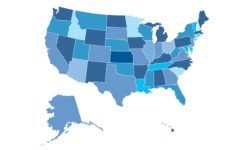OCR: U. of Montana to Reform Handling of Rape Cases
The Department of Justice (DOJ) and the Department of Education’s Office for Civil Rights (OCR) obtained a comprehensive resolution agreement Thursday with the University of Montana-Missoula to ensure that it responds swiftly and effectively to allegations of sexual assault and harassment by students. In May 2012, the United States launched a comprehensive review of the university’s handling of sexual assault and harassment complaints over a three-year period, as well as its policies, procedures, training and student education efforts. The Department of Justice today also obtained a separate agreement with the university to resolve allegations that the university’s campus police force, the Office of Public Safety (OPS), discriminated against women by failing to adequately respond to reports of on-campus sexual assault.
Related Article: How to Investigate Campus Sexual Assaults
The two agreements resolve both of the United States’ investigations of the university: under Title IX of the Education Amendments of 1972 and Title IV of the Civil Rights Act of 1964, which both prohibit sex discrimination in education programs, including sexual assault and harassment, and the DOJ’s investigation of the university’s campus police under the Violent Crime Control and Law Enforcement Act of 1994, and the anti-discrimination provisions of the Omnibus Crime Control and Safe Streets Act of 1968. The Department of Justice continues to seek resolution in its investigations of the Missoula Police Department and the Missoula County Attorney’s Office for their alleged failure to adequately respond to complaints of sexual assault.
The first agreement details specific steps the university will take to:
- Revise the university’s policies, procedures and investigative practices to provide a grievance procedure that ensures prompt and equitable resolution of sexual harassment and sexual assault allegations;
- Adequately investigate and respond to allegations of retaliation by students who have alleged sexual assault;
- Take sufficient effective action to fully eliminate a hostile environment based on sex, prevent its recurrence and address its effects;
- Ensure that the individuals designated to coordinate its Title IX efforts receive adequate training and coordinate these efforts effectively; and
- Revise the university’s notice of nondiscrimination to adequately inform students that sex discrimination is prohibited.
- The university’s separate agreement with the Department of Justice resolving the investigation of the university’s OPS requires that the university:
- Implement or revise policies, provide training and change practices to improve its response to sexual assault, including combating gender bias;
- Work with an independent monitor, community-based organizations and other stakeholders, to develop and implement the reforms described in the agreement and to evaluate OPS’ success in effecting meaningful reform;
- Demonstrate that its implementation of the agreement has eliminated a pattern or practice of constitutional violations and that it has put in place systems and oversight that will prevent patterns or practices of unconstitutional conduct from recurring; and
- Develop procedures for gathering and analyzing data to assess the incidence and outcomes of reports of sexual assault.
The university anticipates that it will achieve compliance with this agreement within two years.
The prevention of sex-based discrimination is a top priority of OCR and U.S. Attorney Offices. Additional information about the OCR is available on its website at www.justice.gov/crt. Additional information about the U.S. Attorney’s Office for the District of Montana is available on its website at www.justice.gov/usao/mt. The enforcement of Title IX is also a top priority of the Department of Education’s Office for Civil Rights. Additional information about the Office for Civil Rights is available on its website at www.ed.gov/ocr/.
Related Articles:
- Preventing and Responding to Campus Sexual Assaults
- How to Comply With the Dept. of Ed’s Title IX Sexual Violence Guidance
- April 2011 Dear Colleague Letter
- Bystanders: Your Best Weapon Against Sexual Assault
- Stalking on Campus: A Silent Epidemic
- The Federal Campus Sexual Assault Victims’ Bill Of Rights
If you appreciated this article and want to receive more valuable industry content like this, click here to sign up for our FREE digital newsletters!
 Leading in Turbulent Times: Effective Campus Public Safety Leadership for the 21st Century
Leading in Turbulent Times: Effective Campus Public Safety Leadership for the 21st Century
This new webcast will discuss how campus public safety leaders can effectively incorporate Clery Act, Title IX, customer service, “helicopter” parents, emergency notification, town-gown relationships, brand management, Greek Life, student recruitment, faculty, and more into their roles and develop the necessary skills to successfully lead their departments. Register today to attend this free webcast!







